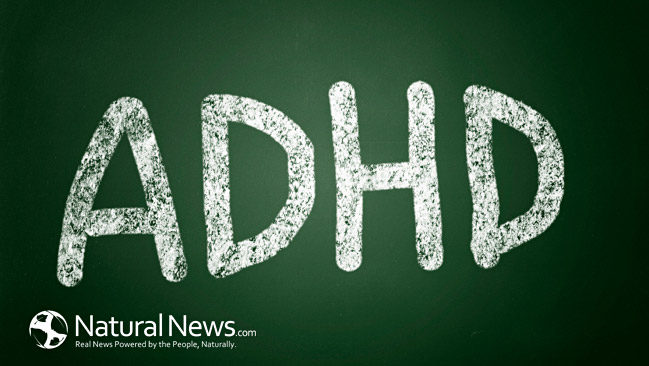In my daily association with the members of kratom groups on Facebook, I have noticed a growing number using kratom to self-medicate their ADD or ADHD. Those who have mentioned it seem to be happy with the results.
The association of ADHD with Type-2 diabetes, when matched up with the traditional use of kratom for diabetes, would indicate that they are onto something useful.
Of course the pharmaceutical industry is not interested in further study on the benefits of a non-patentable herbal remedy for two of their most profitable sales divisions. Why kill the Golden Goose? Two of them, even!
For those who would rather not subject themselves to long term use of amphetamine compounds or the slow failure of diabetic medications that monkey ineffectively with blood sugar reduction, kratom is very promising.
When you add in all the future complications the Type-2 diabetic faces — depression, cancer, heart disease, obesity, arthritis, etc. — for which kratom and/or its alkaloids have proven or plausible benefits, using one herb to improve one’s chances is certainly worth exploration.
Those who suffer from these conditions of diabetes and attention deficit hyperactivity disorder should be overjoyed at having one inexpensive herb available so they can self-treat both conditions. Whether they will take advantage of something that isn’t recommended by their doctor is up to them.
Speaking as one who has an intimate personal knowledge of the day-to-day challenges and temptations that often prevent those of us with a sugar sensitivity from doing what we know we should, kratom is very helpful.
Just being around two obese grandmothers who died before I was twelve, impressed on my subconscious that becoming overweight and diabetic would be good things to avoid. At about the same time, I began to gravitate toward spending my free time in the public library studying health-related topic and particularly, healthy longevity.
That was in the late 1950s and early ’60s when the presence of sugar in our diet wasn’t the epidemic that we face today. Avoiding sugar has become much harder to do — and much more critical to those who would prefer to avoid diabetes and the ADD/ADHD that is often associated with it.
I never liked needles, so avoiding diabetes became an unconscious priority in my life.
At the same time, I knew too well the visceral attraction to desserts and this set up a constant tension, a love-hate relationship. I loved the rush of euphoria sugar would give me, but when I began to connect the crash, anger, and depression that inevitably followed, it didn’t make sense to indulge, but it was nearly impossible to resist.
Kratom, with its subtle appetite-suppressing qualities, has done wonders for my self-discipline. This matter of “doing what we know is in our best interest” seems to be a major challenge for most diabetics. For me, with my herbal helpers, exerting self-discipline makes perfect sense — something that is impossible to explain to the uninitiated.
When a diabetic or pre-diabetic finds an herbal way to overcome insulin resistance, why indulge in sugary foods which we KNOW is only going to mess up how good we already feel?
To act against our own self-interest, once we know better, would qualify as an addictive behavior, wouldn’t it? Kratom is famous for its proven ability to help drug users overcome the pull of addiction, so this improved self-discipline toward “Demon Sugar” is just proof that kratom can defeat a sugar addiction, too.
When we are able to step off the sugar-induced seesaw of emotional and energy unpredictability, the biggest issues of attention, focus, and memory retention are automatically improved, too.
Memory imprinting and accessibility work best when we are thoroughly engrossed in what we are doing. We are conscious of where we put our keys, for instance, rather than being preoccupied with our next opportunity to eat something.
Kratom seems to help us to “Be Here Now“, as Ram Dass suggested we do. When the moment is perfect in itself — and your metabolic needs are all fulfilled by this natural herb — why be anywhere else? This seems to be the mechanism by which ADHD is helped by ending the ongoing diabetic self-talk of “When am I going to eat again?”
Focus is restored when there is no need for food at the moment. (It also helps when we structure our lives around doing the things that are important to us, rather than work for someone else, but that is tangent that would take us off the subject at hand.)
Since “Many of the risk factors for type 2 diabetes include lifestyle decisions and can be eliminated or reduced with time and effort,” according to Healthline.com, Type-2 diabetes is caused by our inability to resist the ubiquitous temptation of our refined carbohydrate-infused society.
The key factors that keeps those who are at risk for diabetes from doing what they know they should is a shortage of self-control, plus the human tendency to postpone what is not immediately a problem in favor of indulging one’s short-term pleasure.
We pretend not to notice weight gain and diabetes’ stealthy approach as we tell ourselves, “The occasional doughnut won’t hurt.”
Today is my 66th birthday. I am celebrating zero need for medication, achieved by regular exercise, no smoking or drinking, sensible eating, and full-specrum nutritional supplementation. However, the biggest breakthrough for me was the discovery that regular use of kratom and an herb-derived preparation called AddieUP could help me tremendously in the willpower and productivity departments.
Avoiding the terrible, debilitating disease of Type-2 diabetes is easily accomplished by giving your self-discipline a boost with kratom. I am not a medical doctor, so I can’t give you advice, but this is what I have read — and by applying it, found it to be true in practice.
Resources:
See Kratom and Diabetes for more information on kratom’s ability to overcome insulin resistance.
Visit OnlineKratom to learn more about this traditional Thai diabetes remedy





